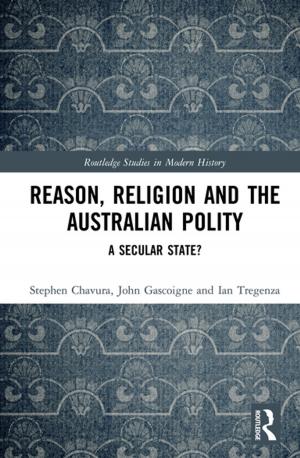Popular Postcolonialisms
Discourses of Empire and Popular Culture
Fiction & Literature, Literary Theory & Criticism, British, Nonfiction, Social & Cultural Studies, Social Science, Cultural Studies, Popular Culture| Author: | ISBN: | 9781317299011 | |
| Publisher: | Taylor and Francis | Publication: | July 4, 2018 |
| Imprint: | Routledge | Language: | English |
| Author: | |
| ISBN: | 9781317299011 |
| Publisher: | Taylor and Francis |
| Publication: | July 4, 2018 |
| Imprint: | Routledge |
| Language: | English |
Drawing together the insights of postcolonial scholarship and cultural studies, Popular Postcolonialisms questions the place of ‘the popular’ in the postcolonial paradigm. Multidisciplinary in focus, this collection explores the extent to which popular forms are infused with colonial logics, and whether they can be employed by those advocating for change. It considers a range of fiction, film, and non-hegemonic cultural forms, engaging with topics such as environmental change, language activism, and cultural imperialism alongside analysis of figures like Tarzan and Frankenstein. Building on the work of cultural theorists, it asks whether the popular is actually where elite conceptions of the world may best be challenged. It also addresses middlebrow cultural production, which has tended to be seen as antithetical to radical traditions, asking whether this might, in fact, form an unlikely realm from which to question, critique, or challenge colonial tropes. Examining the ways in which the imprint of colonial history is in evidence (interrogated, mythologized or sublimated) within popular cultural production, this book raises a series of speculative questions exploring the interrelation of the popular and the postcolonial.
Drawing together the insights of postcolonial scholarship and cultural studies, Popular Postcolonialisms questions the place of ‘the popular’ in the postcolonial paradigm. Multidisciplinary in focus, this collection explores the extent to which popular forms are infused with colonial logics, and whether they can be employed by those advocating for change. It considers a range of fiction, film, and non-hegemonic cultural forms, engaging with topics such as environmental change, language activism, and cultural imperialism alongside analysis of figures like Tarzan and Frankenstein. Building on the work of cultural theorists, it asks whether the popular is actually where elite conceptions of the world may best be challenged. It also addresses middlebrow cultural production, which has tended to be seen as antithetical to radical traditions, asking whether this might, in fact, form an unlikely realm from which to question, critique, or challenge colonial tropes. Examining the ways in which the imprint of colonial history is in evidence (interrogated, mythologized or sublimated) within popular cultural production, this book raises a series of speculative questions exploring the interrelation of the popular and the postcolonial.















